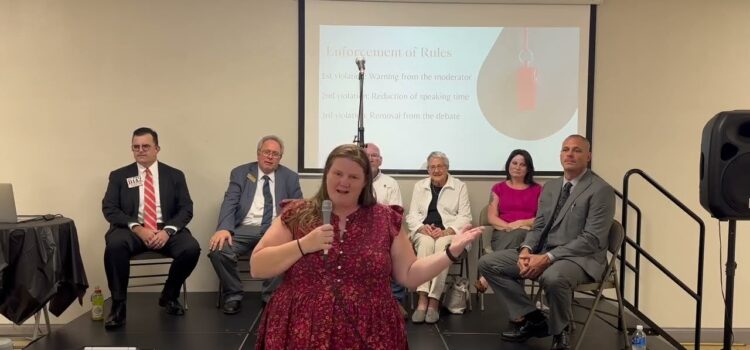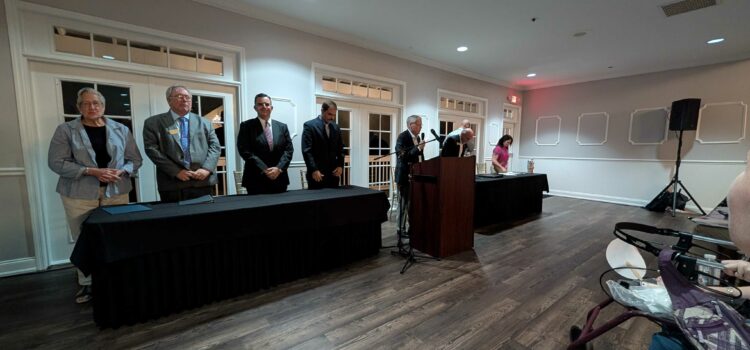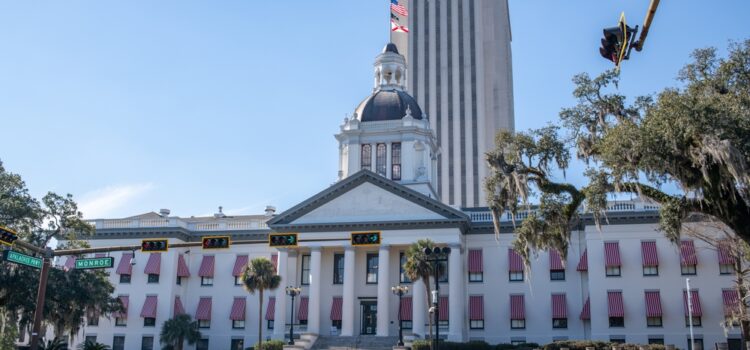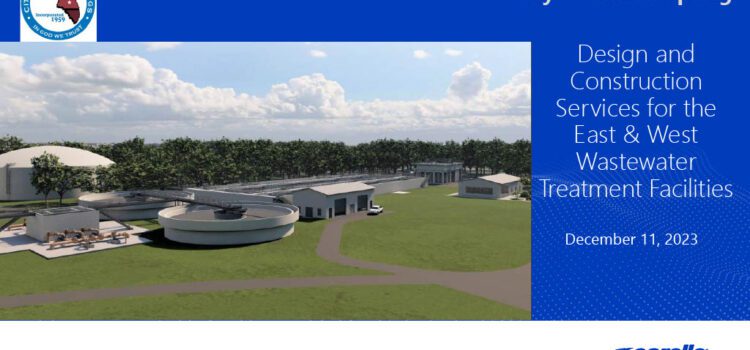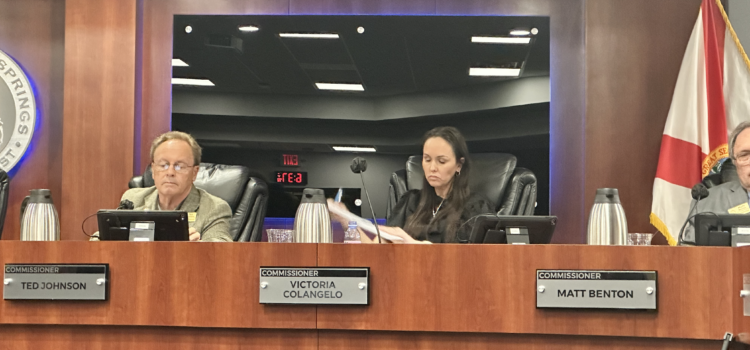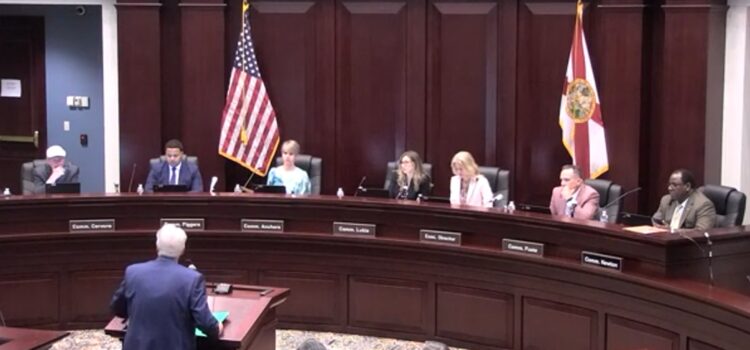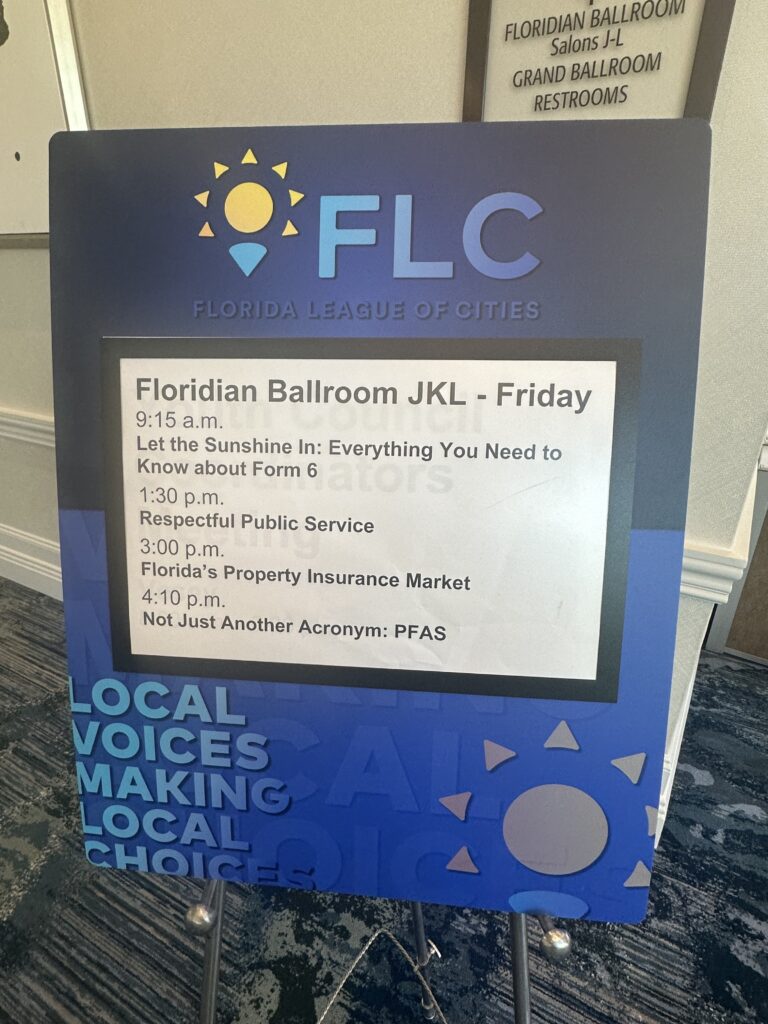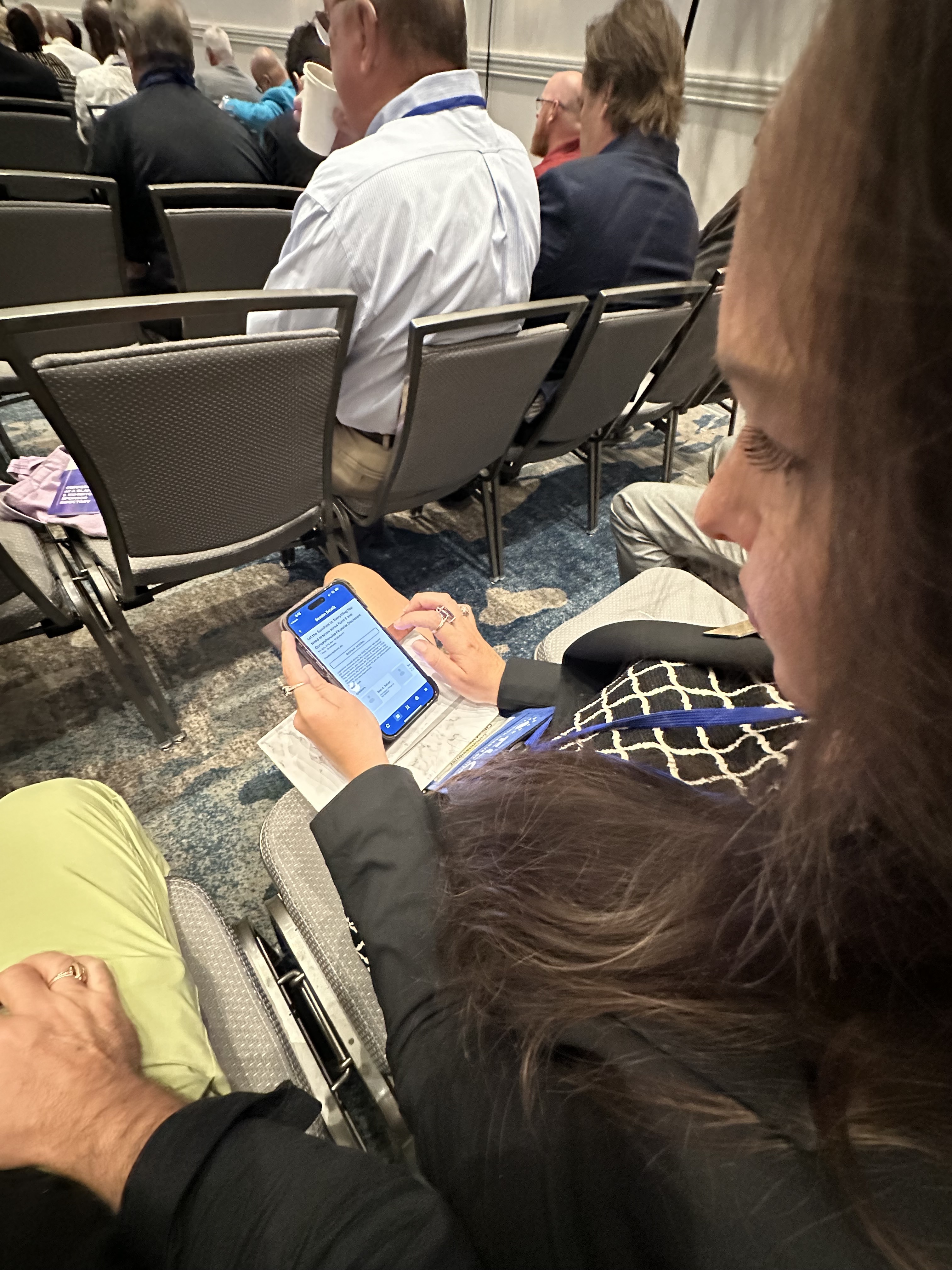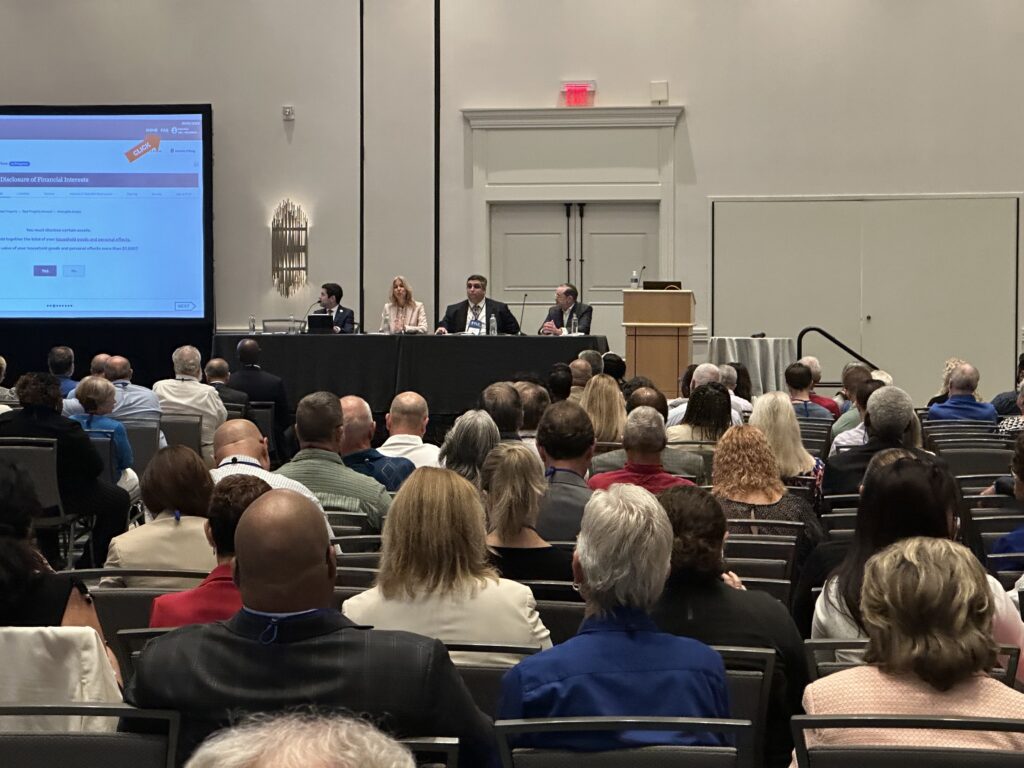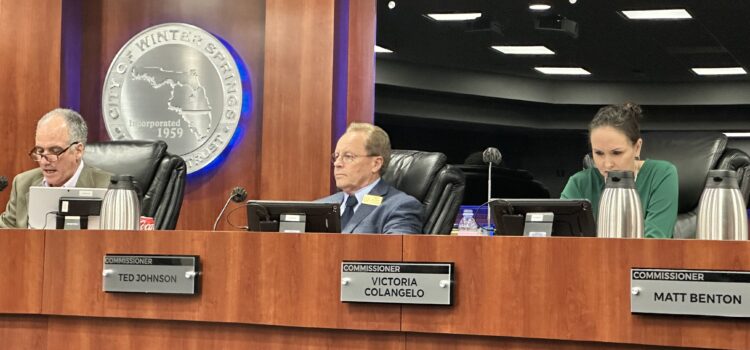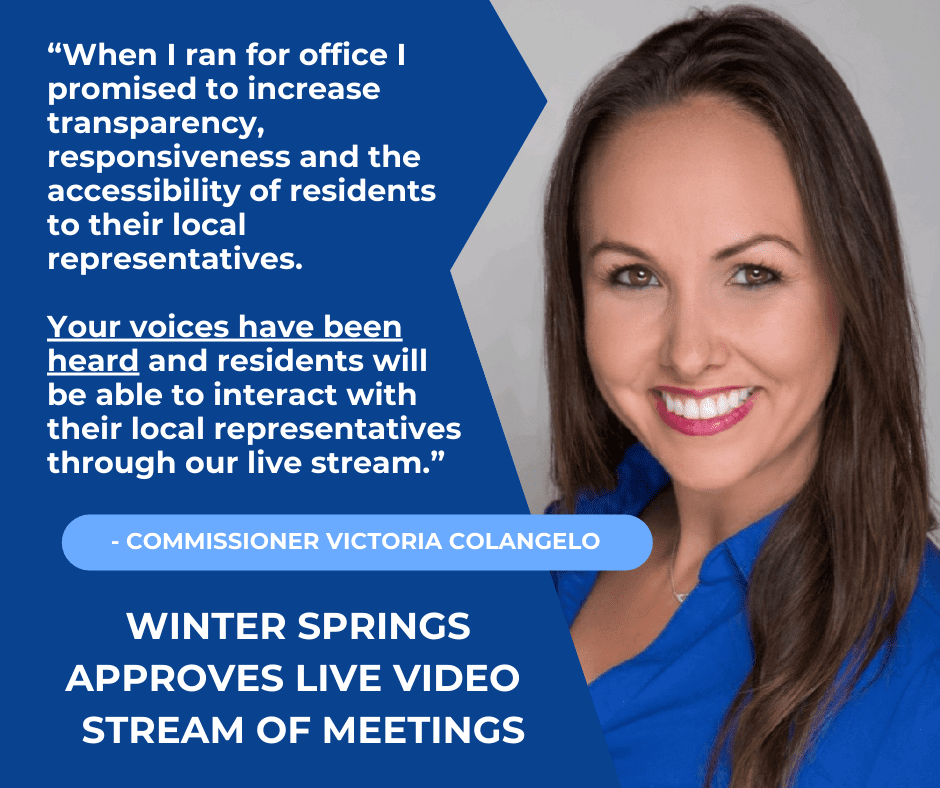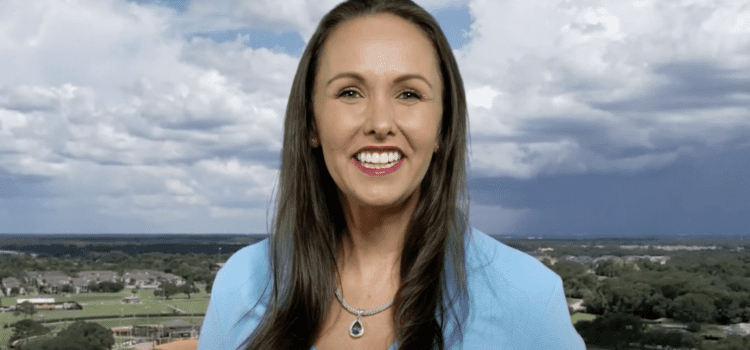Hello, Winter Springs residents!
Our city recently underwent another audit, and as part of my commitment to transparency and accountability, I want to help you make sense of the findings and what they mean for us all. Below, I’ve summarized the key issues and recommendations made in the audit.
Finding 1: Wastewater System Operations
Regulatory Violations: The Florida Department of Environmental Protection (FDEP) has identified multiple violations at both of the City’s wastewater reclamation facilities, East WRF and West WRF. These range from unauthorized wastewater discharges to inoperable wastewater treatment systems.
Financial Implications: Violations have led to civil penalties that the City must either pay or invest in pollution prevention projects. As of June 2023, a total of $318,372 has been incurred in costs and penalties, which impacts the City’s financial standing.
Operational Challenges: The City has taken steps to correct some of these violations, but the continued occurrence of problems indicates systemic issues that need to be addressed. There’s also the potential risk of reputational damage and lawsuits.
City Recommendation: To comply with the audit’s recommendations, the City should work on immediate corrective actions to ensure that all FDEP rules are strictly followed. This could involve a detailed review of the contractor’s operational protocols, the condition of equipment, and compliance with federal and state regulations. Urgent training for the personnel may also be essential.
Finding 2: Water Utility Contract Monitoring
Monitoring and Oversight: The City’s delayed actions in contracting an independent engineering firm for auditing the water utility contractor’s performance might have contributed to the issues identified in Finding 1.
Operational Inefficiencies: The findings from the engineering firm’s delayed report highlight issues like ineffective communication protocols and outdated utility facilities that require attention.
Contractual and Regulatory Compliance: Without effective monitoring, the City cannot ensure that the contractor is in full compliance with the terms of the contract or state laws and rules.
City Recommendation:
The City should establish robust policies and procedures for regular oversight of the contractor’s performance. Annual, if not more frequent, evaluations by an independent engineering firm should be made mandatory, as per the contract terms. The City should also facilitate a transparent and prompt communication system with the contractor to resolve any operational issues swiftly.
Finding 3: Infrastructure Sales Surtax
Overview:
The City received sales surtax collections for infrastructure projects but diverted these funds to projects that were not initially approved or discussed publicly. The lack of transparency and public discussion regarding project reallocations could erode public trust.
Key Points:
Reallocated Funds: City Commission approved the reallocation of $12.8 million from originally proposed projects to other ventures without individual discussion in publicly noticed meetings.
Unaccounted Funds: $2 million transferred from the Road Improvements Special Revenue Fund to the Water and Sewer Utility Fund did not have separate accounting, making it unclear if the funds were used for approved projects.
Public Trust: Changes in project lists and expenditure may not align with public expectations set at the time of the sales surtax referendum.
Transparency: Inclusion of significant sales surtax reallocations in the City Commission’s consent agenda reduced transparency and deprived the public of the opportunity for discussion.
City Recommendation:
Include items with significant financial impacts, like the infrastructure sales surtax, as discussion items in the agenda rather than consent agenda items.
Expend sales surtax collections in a manner consistent with public expectations.
Provide separate accounting for transferred sales surtax collections to other City funds.
Finding 4: Public Records Requests
Overview
According to the State’s Sunshine Law and City resolution, the City of Winter Springs is obligated to provide public records upon request, potentially charging a reasonable fee if the request demands extensive resources. However, the City’s practices are inconsistent with these requirements, as evidenced by an audit of 217 public records requests received between October 1, 2021, and December 31, 2022.
Key Points
Response Time: The City took an average of 29 business days to fulfill 38 requests, attributing the delays to factors like staff schedules and official City business. However, no standard time frame for request completion exists, and requestors were not notified of delays.
Cost Estimation: Six requests were priced between $21 and $3,895 based on estimated labor costs, but no record was kept to justify these estimates. As a result, the requesters did not proceed with payment.
Lack of Transparency: City personnel could not provide documentation to support how cost estimates were calculated. Additionally, no policies exist for tracking the actual time spent on fulfilling public records requests.
Risks
Public Trust: The City’s current practices could erode public trust and compromise transparency.
Legal Compliance: The lack of documentation and guidelines may result in non-compliance with State laws concerning public records.
City Recommendation:
Establish a standard time frame for fulfilling public records requests and notify requesters if delays are expected.
Require that documentation be maintained to justify the estimated and actual costs for fulfilling requests requiring extensive resources.
Finding 5: Procurement Policies and Practices
Overview
The City ordinances mandate that all purchases must adhere to uniform purchasing policies established by the City Manager. However, these uniform policies were not available during the audit period, and multiple instances of non-compliance with ordinances and transparency issues were noted.
Key Points
City Ordinance Requirements: City ordinances require uniform purchasing policies and procedures established by the City Manager. Purchases less than $50,000 can be authorized by the City Manager, while those above require City Commission approval.
Absence of Uniform Policies: Despite requests, City personnel failed to provide the auditors with written uniform purchasing policies as required by the City ordinance.
Discrepancies and Exemptions: There were instances where competitive processes were not followed, such as:
- $67,339 spent on temporary labor services without competitive selection.
- A $67,404 irrigation pump purchase made with three written quotes instead of sealed bids.
- Contract negotiations for communication and branding services based on unspecified criteria not in the RFP.
- A water system operator was selected without adhering to a competitive selection method involving a pricing component.
High Vendor Payments: From October 1, 2021, to September 30, 2022, the City made payments totaling $15.7 million to 59 vendors. Issues were found in purchases totaling $4.9 million from 14 vendors.
Transparency and Fairness: Due to the absence of defined policies, there were instances of unfair and non-transparent procurement processes.
City Recommendations:
Policy Formation: The City Manager should establish written uniform purchasing policies and procedures as mandated by the City ordinance.
Transparency and Compliance: The City should ensure that all purchases adhere to the new policies and procedures, ensuring that the procurement process is transparent and in accordance with City ordinances.
Competitive Selection: Incorporate a clearly defined process for competitive selection in the policies, which should include a pricing component when applicable.
Monitoring and Audit Trails: The new policies should include a mechanism for monitoring and auditing procurement activities for compliance and effectiveness.
Clarity on Exemptions and Definitions: Clearly define terms such as “professional services” and stipulate the criteria for exemptions from competitive processes.
Finding 6: Purchase Cards
Overview:
The City’s audit report on Purchase Cards (P-cards) reveals that while P-cards can serve as a convenient tool for making business-related purchases, they are vulnerable to fraud and misuse. The audit identifies the lack of comprehensive written policies and procedures that should govern the use of these cards. The report emphasizes the importance of internal controls to ensure accountability, especially given that $347,590 was spent through P-cards by 36 City employees between October 1, 2021, and December 31, 2022.
Key Points:
Lack of Comprehensive Policy: City personnel confirmed that there are no comprehensive P-card policies in place. The existing guidelines are limited to what is outlined in a cardholder agreement that each user must sign.
Basic Guidelines Exist but Are Insufficient: A cardholder agreement outlines fundamental aspects like the responsibility for the card, pre-approval of expenditures, and submission of receipts. However, these are not considered comprehensive policies.
Old City Commission Resolution: City personnel provided a City Commission resolution from 2004 that has elements of a P-card policy, but it is not adequate for current needs.
No Documented Supervisory Pre-Approval: Although the cardholder agreement mandates pre-approval of expenditures through managerial supervision, City records showed no evidence that any of the P-card expenditures were pre-approved. The process is verbal, and there is no written record.
Increased Risk of Fraud or Misuse: In the absence of effective controls and policies, there’s an increased risk that unauthorized or inappropriate expenditures could go undetected. The audit did not find any such expenditures, but the risk remains.
City Recommendations:
Establish Comprehensive Policies: The City should develop a comprehensive written policy that provides guidelines on all significant aspects of P-card usage. This should include, but not be limited to, acceptable uses, vendor types, single purchase limits, daily and monthly limits, and supervisory approval processes.
Document Pre-Approval: In line with the existing cardholder agreement, the City should document the required supervisory pre-approval for each P-card expenditure to reinforce accountability and transparency.
Periodic Reviews: To ensure compliance and detect any unauthorized or inappropriate usage promptly, the Finance Department should conduct periodic reviews of P-card transactions against the established policies.
Finding 7: Management Turnover
Overview:
Finding 7 highlights the challenges arising from significant turnover in key management positions in the City from April 2019 to February 2023. Frequent turnover, especially in critical roles like the City Manager and Finance Director, poses risks to the consistency and effectiveness of internal controls and policy application. The report notes negative workplace environment allegations and Commission interference as some of the factors contributing to the turnover. The issue has had cascading effects, leading to delays in financial audits and substantial unpaid invoices.
Key Points:
High Turnover in Key Positions: Roles such as the City Manager, Finance Director, Chief of Police, and Directors of Public Works and Community Development have seen multiple resignations over a relatively short period.
Negative Workplace Environment: Some personnel who resigned cited issues such as a hostile work environment and questioning of loyalty by Commissioners.
Commission Interference: Instances of Commission interference with City staff were noted. Training to prevent such interference is now part of the City Commissioners’ onboarding process.
Financial and Operational Consequences: The turnover has led to delays, including the incomplete fiscal year 2021-22 financial statement audit, and significant unpaid invoices totaling $1.2 million, affecting the City’s contractual obligations and finances.
Loss of Institutional Knowledge: The frequent changes in leadership have resulted in a loss of critical institutional knowledge, affecting the oversight, application of City policies, and possibly leading to control deficiencies and non-compliance.
City Recommendations:
City Commission Training: Continue and possibly intensify the training sessions for City Commissioners during their onboarding process, focusing on the importance of non-interference with City staff, as mandated by the City Charter.
Positive Work Environment: Develop and implement policies that actively foster a positive work environment. This could include initiatives aimed at employee well-being, transparent communication channels, and mechanisms for anonymous feedback.
Retention Strategies: Consider creating retention strategies for key management positions, such as competitive compensation packages, opportunities for career development, and offering exit interviews to understand the reasons behind resignations.
Audit Completion and Invoice Settlement: Prioritize the completion of pending audits and settlement of unpaid invoices. This may require interim staffing solutions or external assistance.
Policy Review: Conduct a thorough review of current internal controls and procedures to identify any gaps or inefficiencies that may have arisen due to the turnover. Implement changes as needed to ensure consistent policy application and effective operations.
What’s Next?
The City has been given recommendations on how to address these issues, and it’s crucial the city respond to ensure these changes are implemented for the betterment of our community. I’ll keep you updated on developments as they happen.
If you have any questions or want to discuss this further, feel free to reach out. Together, we can build a stronger, more transparent Winter Springs.
Best,
Victoria For Winter Springs
